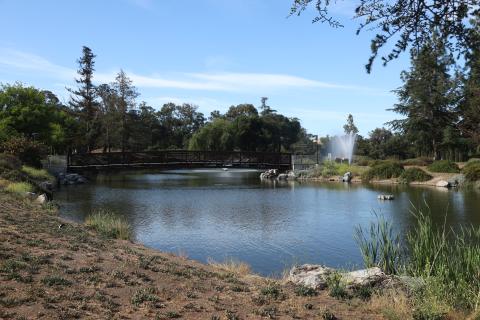Overview.
The goal of the Associate in Science in Physics for Transfer (AS-T) degree is to provide a lower-division science foundation for those interested in pursuing physics as a major field of study. The study of physics encompasses all interactions and energy exchanges observed among natural systems. It explains the behavior of the smallest particles in the atom, quantifies and predicts power consumption of household appliances, and explains the movements of big complex systems such as planets, stars, galaxies, and the universe in large scale. The completion of courses in general physics provides a foundation that will expand the student’s worldview, bringing appreciation and understanding of nature's main processes.
Note: High School Preparation: Courses in physics, chemistry, four years of high school mathematics are required. If this preparation is not complete, Evergreen Valley College offers courses to meet this preparation. If the preparation is not complete, it may take more than two years to complete the AS-T degree.

To be awarded the Associate Degree for Transfer, students must have the following:
- Completion of 60 CSU transferable semester units.
- A minimum of at least 2.0 GPA in CSU transferable courses (note that a higher GPA may be required in some institutions).
- Completion of at least 18 units in the major with a grade of “C” or better. A “P” (Pass) grade is also an acceptable grade for courses in the major if the course is taken on a Pass/No Pass basis.
- Certified completion of the Intersegmental General Education Transfer Curriculum (IGETC) for CSU requirements.
Please Note: No more than 60 semester units are required for this degree and no additional requirements will be imposed by Evergreen Valley College.
What is a Program Map?
A program map is a suggested semester-by-semester plan to help you complete the courses required for a particular degree or certificate. It is based on the major sheet for the particular degree or certificate you are interested in. It includes courses required for the major, general education and any necessary electives.
A program map is a representation of the major sheet. It includes the specific specialty courses in a major, general education courses and any necessary electives.
What is a Major Sheet?
A major sheet includes a description of the program you are interested in, what you can expect to learn once you have completed the program (Program Learning Outcomes) and the specific specialty courses you will need to complete within a major.